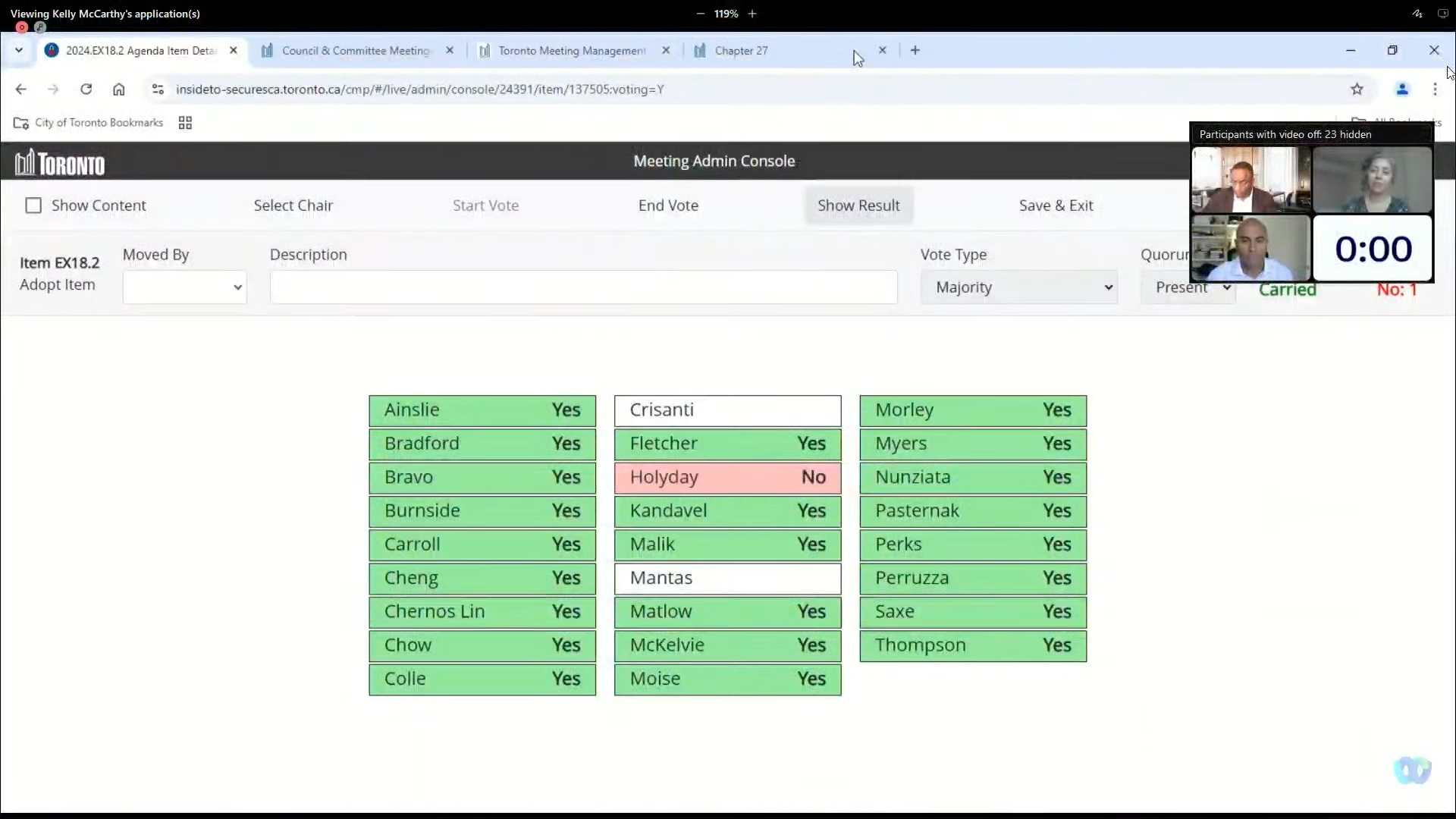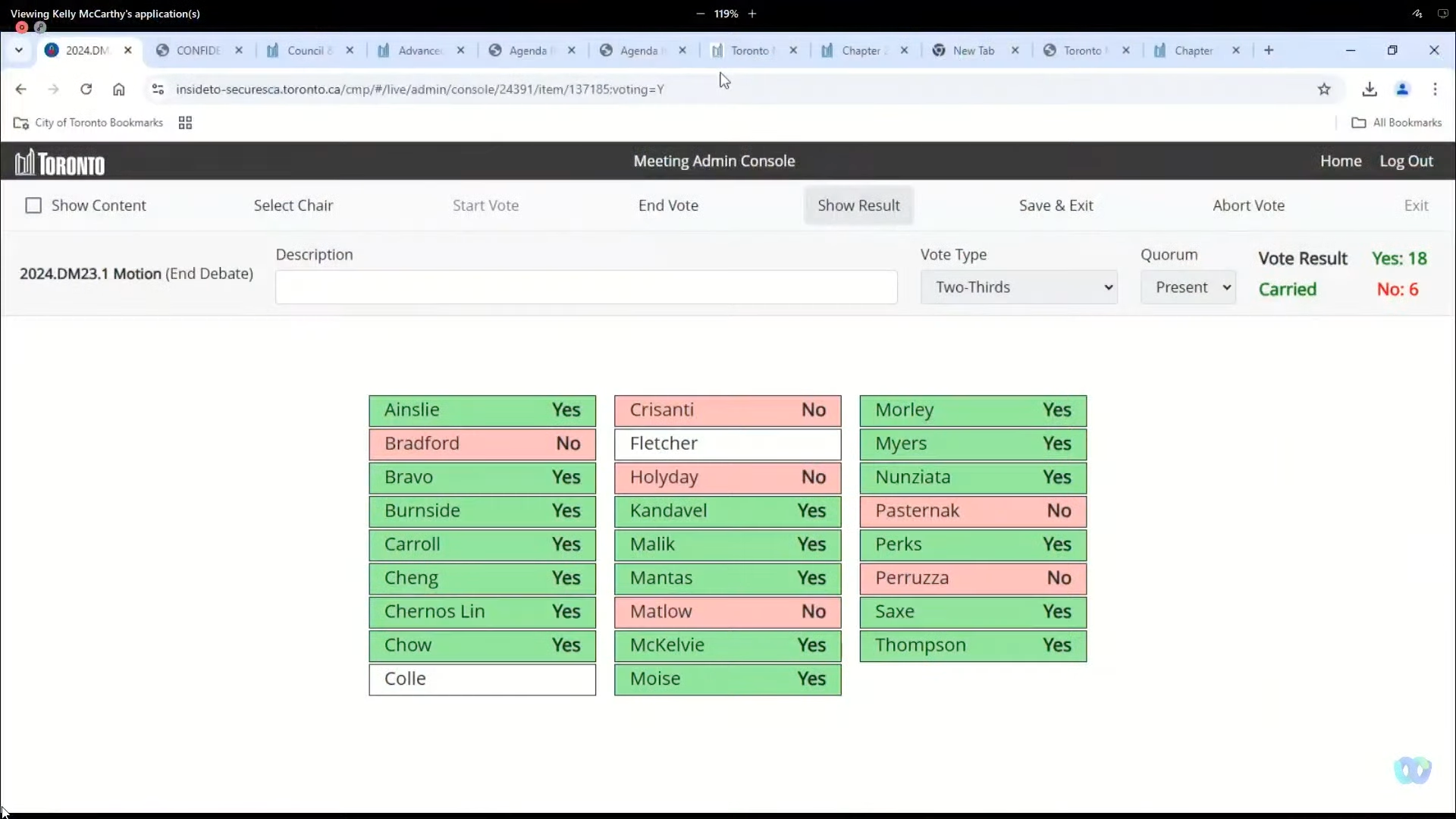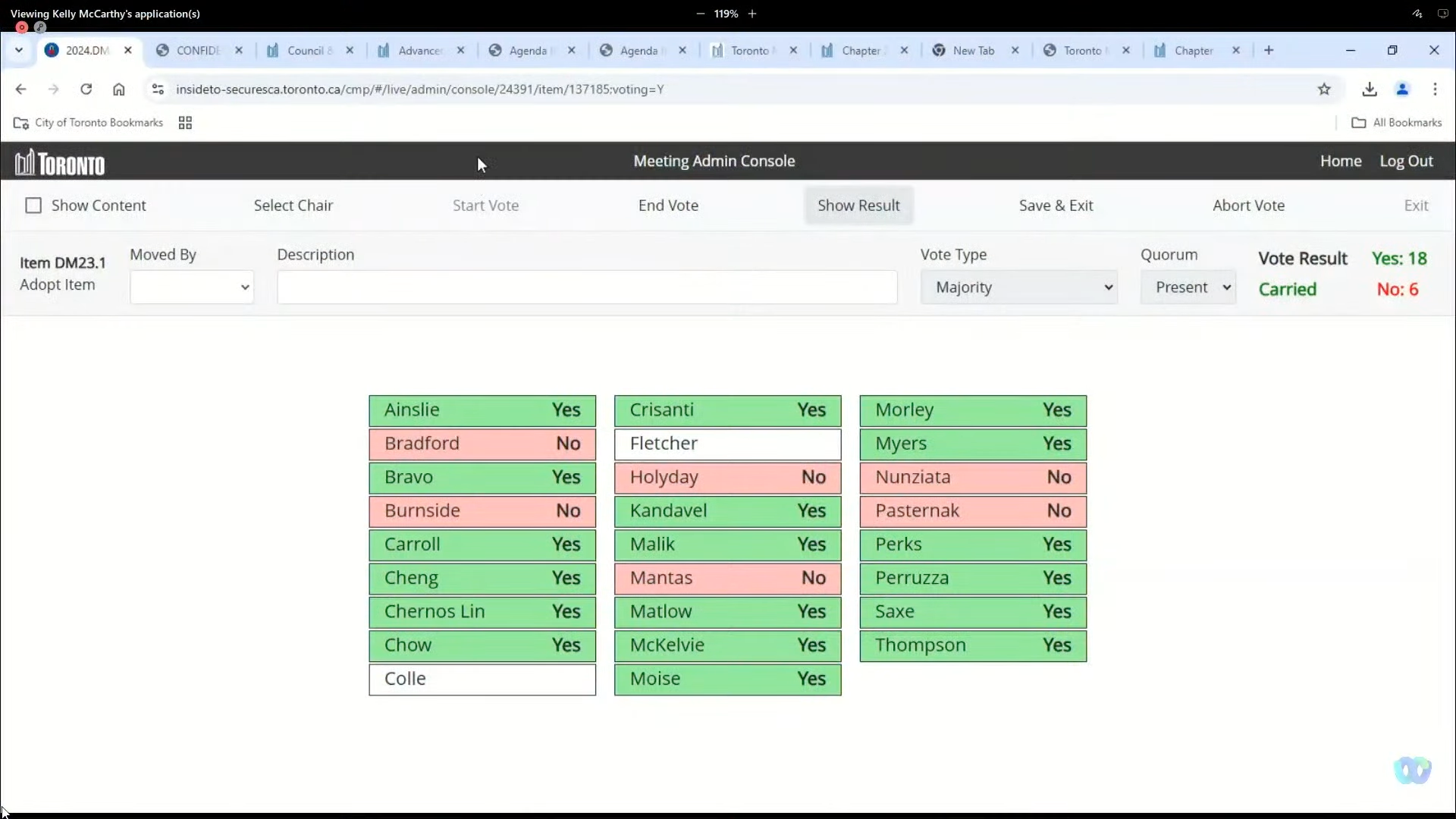Toronto Council meets today!
-
Councillor Brad Bradford, noting he called for a rental incentive program earlier this year, says this program "shows such a lack of alignment" with the feedback from developers about their costs.
"The incentives proposed are not enough. It's mild. It's meek. It's inadequate."
-
Bradford says there's more promise in phase 2 of the rental incentive program, but it needs $9 billion combined from the federal and provincial govs.
"So I just think it's a little disingenuous for us to go out there and suggest we're unlocking 20K units of housing."
-
Councillor Gord Perks, on the other hand, calls the rental incentive program "totally revolutionary."
"It's smart and it will be effective."
Perks takes issue with Bradford citing RESCON and BILD, saying those trade associations will always be asking for more from city hall.
-
"Just about every developer in the city of Toronto wants in" to the rental incentive program, says Perks. He says city has taken "courageous step" to rebalance market more toward purpose-built rentals. He says staff have shown their "genius" with this program. I think he's a fan
-
"We do have a housing crisis in front of us. If we can't see it in the face of our neighbours, I don't know why we're here. We know we need to build more affordable housing because, for three decades, every level of government walked away," says Mayor Olivia Chow.
-
With no motions but with some skeptical speeches, Toronto's new rental housing incentive program is APPROVED 23-1.

-
One agenda item down, 58 to go. And that takes Council to lunch. They'll be back at 2 p.m. So will I.
-
A bit late, but Council is back.
Up now: a deferred item from last meeting. Councillor Saxe wants a report on allowing 16- and 17-year-olds to vote in local neighbourhood polls. The city uses these to measure support for things like permit parking. https://secure.toronto.ca/council/agenda-item.do?item=2024.DM23.1
-
Advocates have argued letting younger people vote in neighbourhood polls is a good opportunity to build civic engagement. Holyday, though, has concerns about the logistics of registering 16- and 17-year-olds as voters in these polls.
-
Pasternak asks if it makes sense for young people to vote on things like speed bumps when they don't drive. Transportation GM says Council recently waived polling requirements for traffic calming, so it's not really relevant. (But also, 16 year olds can drive!)
-
Councillor Dianne Saxe rises to ask colleagues to support reviewing letting 16- and 17-year-olds vote in neighbourhood polls. "We know how important it is to encourage and facilitate participation by young people in the life of the city," she says.
-
"It would be very significant symbolically to give them a vote for the first time in a formal process," says Saxe.
"This is a very small step — a limited effort by the city — to indicate to 16 and 17-year-olds that their voice counts. Their future in this city counts."
-
But Councillor Holyday says he'll vote against it. He worries that a self-identification voter registration process for 16- and 17-year-olds could be vulnerable to fraud and threaten the integrity of the neighbourhood poll results.
-
Councillors Morley and Cheng are in favour of getting a report on 16- and 17-year-olds voting, arguing it's important to give young people a way to engage with local issues and promote active citizenship.
-
Pointing out this is a mere report request — not an actual motion to change anything yet — Councillor Shelley Carroll moves to call the question and end debate. That CARRIES 18-6.

-
Council votes 18-6 to APPROVE a report on allowing 16- and 17-year-olds to vote in neighbourhood polls on issues like permit parking.

-
"Wow, we have so many priorities in this council chamber," Nunziata remarks sarcastically after the vote for a report on 16- and 17-year-olds voting in neighbourhood polls.
-
Up now: a temporary increase to the hotel and Airbnb tax to fund costs related to hosting part of the FIFA World Cup in 2026. Staff are proposing a temporary hike from 6% to 8.5% for June 1, 2025 to July 31, 2026. Temp tax hike will raise ~$56.6 million. https://secure.toronto.ca/council/agenda-item.do?item=2024.EX18.17
-
Cheng asks how the hotel/Airbnb tax is allocated. City CFO says a portion goes to Destination Toronto for tourism marketing and other costs, while the rest goes to City Hall general revenues. In 2023, the City received $94 million total and sent $28 million to Destination TO.
-
Councillor Crisanti asks how CFO determined the timeframe for the temporary tax, noting the 14-month period is way longer than the length of the World Cup. CFO says they started with a revenue target, then determined how long the extra tax would need to be in effect to reach it.
